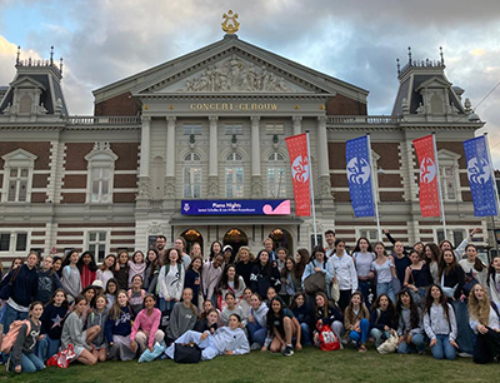The English Departments programme of Literary Society talks launched with a wonderfully insightful and engaging lecture delivered by Professor Helen Hackett of the English Department at University College London.
A specialist on Renaissance Literature, focusing primarily on womens writing, representations of women and Shakespeare, Professor Hackett offered a historicist reading of Hamlet to an audience comprising girls, staff and parents not only at FHS, but also schools including North London Collegiate, City of London Girls and Notting Hill & Ealing. Placing the plays composition against its contemporary backdrop of the 1590s deemed by historians as the nasty 90s Professor Hackett posited that several aspects of Hamlet resonated with events and developments towards the end of Elizabeth Is reign. For instance, where the character of Polonius the chief counsellor to Claudius may be considered to personify the ageing statesmen surrounding Elizabeth, those such as Hamlet and Laertes could be linked to the new emergent generation of courtiers in Elizabeths twilight years, often vying for power. The underlying sense of civil unrest and resentment against the aristocracy brewing in England during the 1590s could also be seen to be reflected in Hamlet and the much quoted line suggesting that Something is rotten in the state of Denmark.
In addition, Professor Hackett considered the cult of Elizabeth in iconography and the myth of stasis that grew up around her. In turn, it was argued that societys preoccupation with Elizabeths ageing and her sexuality is echoed in the character of Hamlets mother, Gertrude. The talk also linked the eponymous protagonist with the Earl of Essex both figures being young but trapped within an old state, whilst Hamlets indecision could be seen to be a product of the time and culture within which the play was written. In taking questions from the audience, Professor Hackett discussed the notion of Hamlet as a misogynistic play and ultimately convinced a much engaged audience of the value of historicist interpretations of literary texts.
Mr Li














